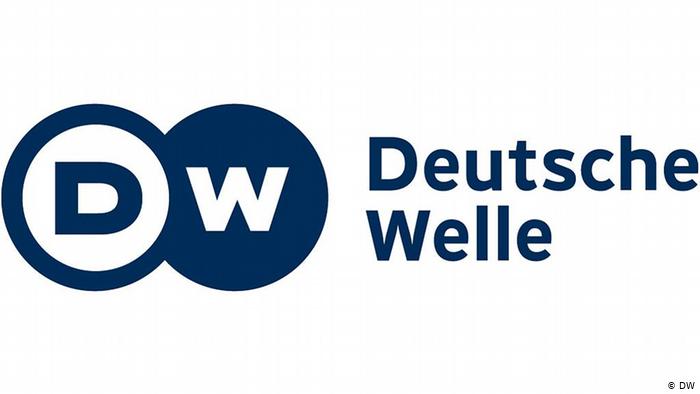Onur Can Keskin, a lawyer for the CGD, told DW that the court’s decision must be immediately implemented: “The court’s ruling is binding. Administrators have to abide by the decision.”
One of Turkey’s highest courts has ruled the president cannot refuse to issue press accreditation for arbitrary reasons. A government spokesman reacted with defiance, calling journalists propaganda-spewing terrorists.

Turkey’s Council of State, the country’s highest administrative court, ruled recently that the Directorate of Communications, which is under the control of President Recep Tayyip Erdogan, can no longer refuse to issue press accreditation to journalists citing vague or arbitrary reasons for the decision.
The case was brought to the court by the country’s second-largest journalists’ association, the CGD (Cagdas Gazeteciler Dernegi). Judges found that the CGD’s suit had legal merit and ruled that the government could no longer use vague or arbitrary grounds, such as “violations of national security and public order,” to justify refusing press accreditation.
‘The embargo has been legally lifted’
Onur Can Keskin, a lawyer for the CGD, told DW that the court’s decision must be immediately implemented: “The court’s ruling is binding. Administrators have to abide by the decision.”
Keskin said the most troubling aspect of the government’s approach is that it is unknown why exactly most applications have been denied, adding that most of the reasons given are simply incomprehensible.
After the court’s ruling, applications for accreditation can no longer be held up indefinitely with officials saying they are “under review.” Over the past two years, the Directorate of Communications has rejected applications in 1,238 applications and refused to renew accreditation in a further 1,372 cases.
Among those journalists whose applications are currently in limbo and have been filed as “under review” are Turkish employees of the Deutsche Welle.
According to a report published by the non-governmental organization Reporters without Borders (RSF), roughly 95% of Turkish media outlets are under government control. Limited access to accreditation represents yet another hurdle for journalists, as they are unable to carry out their profession if the government revokes their press credentials or lets them lapse without renewing them.
In many countries around the world, press passes are issued by professional journalists’ associations or unions — that is not the case in Turkey. Until 2018, that role fell to the Directorate General for Press and Information. Although it was closely tied to the government in Ankara, no such infractions were registered at the time, perhaps because journalists’ organizations were also represented within it.
New way to pressure journalists: Stop issuing press passes
When Turkey introduced its new presidential system in 2017, the role of issuing press accreditation shifted to the Presidential Directorate of Communications — that is, to President Erdogan. Fahrettin Altun, a Turkish politician who previously led the controversial think tank SETA (Foundation for Political, Economic and Social Research), was tapped to head the directorate and the issuance of press accreditation has been entirely under the control of the president ever since.
Since then, various vague excuses have been used to justify refusing journalists the right to work, most often, reasons such as “harming national security and public order” or “damaging the professional honor of journalism” are cited. Directorate head Altun has used the leverage afforded him by his position to impede opposition journalists or those who publish content the government doesn’t like, from practicing their profession.
While many media outlets are under increasing legal and financial pressure, the government has branded journalists who publish critical pieces in print or on social media as “terrorists.”
Applications for accreditation for journalists working in DW’s Turkish Department were labeled “under review.” Some applications were submitted more than six months ago — written requests for status updates have gone unanswered.
Why are press credentials so important?
Journalists without proper press credentials are not considered journalists by the Turkish state and police can keep such individuals from conducting interviews on the street or attending societal events. Their requests for information or interviews go unanswered and they are not allowed entry to government events such as official ministerial or presidential press conferences.
Although the Council of State’s decision is legally binding and must in fact be immediately followed, the first reactions from the Directorate of Communications made clear the body has no intention of doing so.
After the court’s decision was made public, Fahrettin Altun once again compared journalists who have been denied accreditation to terrorists: “As long as we are in office, we will fight those terrorists peddling ‘propaganda’ under the guise of ‘journalism.’ Terror fans shouldn’t get excited over nothing.” Altun also claimed that his agency had already begun to improve the rules criticized in the court’s verdict.
Legal counsel says pressure won’t stop
Speaking with DW, Veysel Ok of the Media and Law Studies Association (MLSA), a Turkish non-profit, summed up the director’s statement with the following words: “The Council of State, in its latest decision, ruled that press credentials cannot be used as an instrument to intimidate journalists. The shadow that the Directorate of Communications has cast over journalists must be lifted. Still, as one can see in Fahrettin Altun’s statement, the government has already taken steps to enact new, more restrictive rules. The government clearly has no intention of ceasing to use illegal means to increase pressure on journalists.”
Erol Onderoglu of Reporters without Borders has similar concerns. He said the current situation “creates the impression that journalists waiting on press accreditation are unwelcome and that they had better think twice about what they intend to publish.” Still, the RSF representative says international pressure is the right approach to ending the Turkish government’s abusive tactics.
Bülent MUMAY
This article has been translated from German by Jon Shelton.
